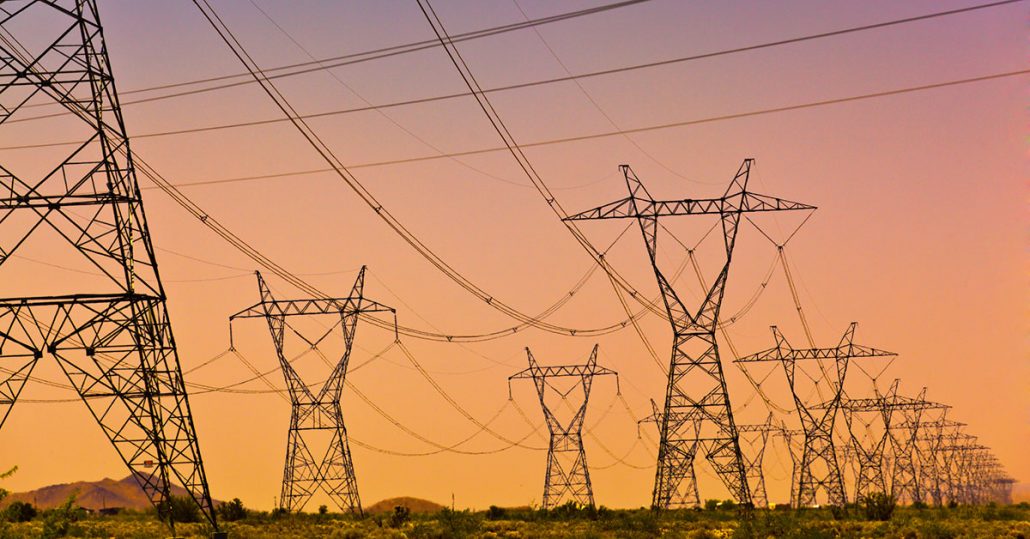
The Rules governing procurement of Electricity Power Projects and Approval of Power Purchase Agreements have been issued in Tanzania. The Rules, titled the Electricity (Procurement of Power Projects and Approval of Power Purchase Agreements) Rules, 2019 (GN No. 453 of 2019) (“the Rules”) were issued effectively June 2019. These new Rules govern the regulatory processes related to the initiation and procurement process of power projects and the approval of Power Purchase Agreements (PPA) in Tanzania. The Rules are made under the Electricity Act, Cap. 131 and are to be read in tandem with the Public Procurement Regulations, 2013 (GN No. 446 of 2013 as amended). In this update, we highlight the salient regulatory requirements of the Rules and the way forward for PPA in Tanzania.
PROCEDURES FOR INITIATION OF POWER PROCUREMENT
The Rules have laid down the procedural guideline to be adopted by Purchasing Licensee (an entity that has been authorized by the Authority to undertake electricity distribution or transmission activities or to operate the power system and which proposes to purchase power from any other party) before undertaking any procurement of Power Project. In principle, the rules prohibit Procurement of Power Project without approval from the Energy and Water Utilities Regulatory Authority (EWURA) (“the Authority”). Any approval sought must be made in writing and must contain the summary of the project, whether the project is undertaken through Public Private Partnership (PPP), evidence of technical and financial capability, feasibility studies, environmental and social impact assessment, site appraisals, to mention but few.
It is also important to note that, the Rules requires the Procurement of Power project to be clearly identified as to whether it would follow PPP arrangement or not. If the Project is to be undertaken through PPP arrangement, then the PPP Centre must review and recommend the Project in accordance to the Public Procurement Regulations as well as Public Private Partnership requirements. (Rule 4)
According to the Rules, the Application for Power Project would undergo both preliminary and detailed evaluation (Rule 5 and 6) by the Authority to determine the completeness of the application. The evaluation would asses, in the event of site-specific projects; completion of project preparation and project risks mitigations. For capacity-based projects evaluation would base and assess whether the proposed capacity is expected to meet the projected demand and how the project fits with the Power System Master Plan.
Further, according to Rules 7 and 8, the decision by the Authority to grant, deny or referring back the Application for Power Project would be done upon consideration of the factors such as; whether the project is listed in the Power System Master Plan, or if the project developer has sufficient technical and financial ability to undertake the project successfully, or if the project developer has feasible technology to generate electricity, or feasible site to develop the project or mitigation of the Project risks.
Should there be any material changes on the Power project such the capacity, technology, fuel or location subsequent to the Project approval, the Purchasing Licensee is required to communicate and sought an approval to the Authority in writing as per Rule 9.
The rules have laid down two types of Procurement process for Power Project i.e. Procurement of Power Project through Competitive Tendering and Procurement through Unsolicited Proposals.
Competitive Procurement of Power Project
The Competitive procurement of Power Project is done by the issuance of Request for Quotation (RFQ) for prospective developers in accordance with the Public Procurement Act. Evaluation of Bids submitted would be done to identify developers who are capable of constructing and operating a given power project, and the bids are to be evaluated on a pass or fail basis. Qualified bidders would then be invited to submit Request for Proposals (RFP).
Procurement through Unsolicited Proposals
The rules have limited procurement of Power Projects to be made through Unsolicited proposals only when:-
- the costs and risks of the said projects are reasonably weighed against the costs and risks of a similar projects
- the project developers’ return on equity is reasonably when weighed against the return on equity of projects with similar costs and risks
- the proposed price is below or within the range of the Indicative Price
- the major components of the project shall be subjected to competitive tendering process, where appropriate; and
- the outcome of the procurement was not affected by ownership interests or payment of any commission, gratuity or fee.
PROCUREMENT OF POWER IN EMERGENCIES
According to Section 4(2) of the Electricity Act (Cap. 131), the Minister responsible for Energy is empowered to coordinate emergency power responses. Thus, the Rules, prohibit and disclaim as void, any Power purchase agreement executed in emergency situation that does not follow the procedure laid down by the Rules.
Procurement of power project under emergency must be by application made to the Authority. The application would then be evaluated, and decision made within 10 working days. Such application must observe three (3) requirements:-
- A declaration by the Minister of an emergency requirement to procure power project under emergency
- a brief summary of the purchase rationale, explaining why the electricity produced by a project of the said size, location and duration is needed in order to overcome the emergency power situation
- a statement of intent describing the type of procurement process to be undertaken, which shall either be a standardized process or a non-standardized process and the timeframe for undertaking the said procurement
Moreover, according to Rule 35 and 36, the approval and negotiation of Power Purchase Agreement shall be concluded in a shortest period as possible not exceeding 30 days. The application of the Power Purchase Agreement under Emergency procurement must be made to the Authority together with the following information: (a) evidences that the project developer has technical and financial capabilities to undertake the project, (b) the initialed Power Purchase Agreement, (c) summary of the key terms and conditions of the Power Purchase Agreement, (d) details disclosing project owners, beneficial ownership of companies and trusts, and (e) any relationship that owners have to Ministers, Government officials and staff of a Purchasing Licensee, Ministry or the Authority.
In evaluating the emergency Power Purchase Agreements, the Rules have classified two types of process i.e. Standardised Procurement and Non Standardised Procurement of Power Purchase Agreement.
- Where Standardised Emergency Procurement process is followed, the Authority must make decision within 15 working days but also, the costs of an emergency power purchase agreement will pass through into a tariff.
- Where non Standardised Emergency Procurement process is followed, the Authority shall make its decision under this rule within thirty working days. The approval of costs to pass into tariffs is subject factors such as reasonability of costs, risks, project return on equity and outcome of procurement not being affected by ownership interest or payment of commission, gratuity or fee.
PROCEDURES FOR APPROVAL OF POWER PURCHASE AGREEMENTS
Power Purchase Agreements (PPA) can only be concluded upon the approval by the Authority. Upon such approval, procurement process together with the negotiation of a PPA is required to be done in the shortest period possible and in any event not more than six months. The Rules allows the Authority to sit in as observer during the negotiations of the PPA and only be responsible for providing clarification on some legal and regulatory issues during the negotiation. The Rules allows for addition of terms and conditions which were not earlier included or are at variance with the Power Purchase Agreement model, provided that such terms aim at protecting public interest and, with prior approval of the Authority.
Before signing the Power Purchasing Agreement, the Purchasing Licensee is required under Rule 28 to apply to the Authority for approval. Such application must contain the initialed PPA together with all project Agreements, summary of the key terms of the agreement, details of the project owners, details of the procurement process used (together with evidences), names of person or firms both local and international which have paid commissions, gratuities and fees above TZS 50,000 in relation to the procurement of power or execution of the Power Purchase Agreement.
It is important to note that, the Rules allows the costs of a Power Purchase Agreement resulting from a Solicited Project Proposal during procurement under Emergency to pass through a tariff. However, for Unsolicited Project Proposals, the Authority is empowered to approve such costs to pass through tariff if, the costs and risks of the Power Purchase Agreement are reasonably weighed against the costs and risks of similar projects, or the project developers’ return on equity is reasonably weighed against the return on equity of projects with similar costs and risks.
In evaluating the Power Purchase Agreements, the Rules requires the Authority to consider factors such as the conformity of the Application to the EWURA Act and Regulations, costs for the Power Purchase Agreement and effects to the Economy, the influence of project tariff on power system, the negotiation of the Power Purchase Agreement was done on a win-win situation. Upon evaluation of the Application, the Authority is required to make decision within 30 days in case of a Solicited Application or 45 days in case of Unsolicited Proposal. The Rules empowers the Authority to either grant the application, reject or refer back the application.
GENERAL PROVISIONS AND CONSIDERATIONS
On Termination and Amendment of the PPA: The Rules restrict the Purchasing Licensee to terminate any Power Purchase Agreement unless with 90 days written notice or to amend the Power Purchase Agreement unless approved by the Authority.
With regards to dispute resolution, the Rules provide for resolution of disputes through the Fair Competition Tribunal. Any person is aggrieved by the decision of the Authority may appeal and seek redress through the Fair Competition Tribunal.
FIN & LAW -Client Update II- September 2019 -Energy and Projects -Power Purchase Agreements



